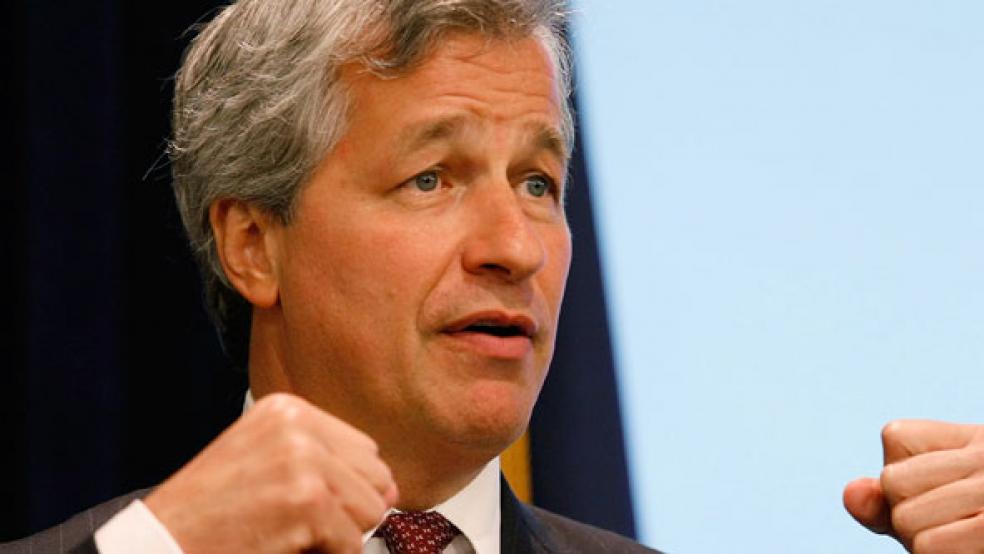The U.S. still doesn’t have a budget for 2011 and a government shutdown could come as soon as next week which doesn’t instill confidence in the business community and investors. Add to that the vote on raising the debt ceiling — which could take place as early as mid April—and you have a trifecta of fiscal and political trouble.
JP Morgan Chase CEO Jamie Dimon warned lawmakers, “If the U.S. were to default on its debts, it would be catastrophic and unpredictable. Anybody who wants to take that risk is crazy,” he said at the U.S. Chamber of Commerce event Wednesday.
Dimon warned that his bank, the second largest in the world with over $2.1 trillion in assets, would probably wind up taking immediate action with thousands of companies across the globe as short-term financing dried up in the face of uncertainty about the solidity of U.S. treasuries. As companies and large funds with cash holdings began demanding higher rates or switching to other currencies, it would force the bank to curtail short-term lending to companies across the board, he said.
“I would be taking really drastic action,” he said. “It would be very unpleasant.”
With the federal budget deficit projected to rise to $1.6 trillion this year, the statutory debt ceiling of $14.3 trillion will easily be exceeded, according to the latest Treasury Department estimates. Congress has voted to raise the debt limit 10 times since 2001 after the usual squabbles and accusations about which party drove up spending more. But this year, with a new crop of freshmen lawmakers closely aligned with the Tea Party, it’s anybody’s guess whether Congress will agree to raise the limit or force the government to cut more spending.
Dimon, a long-time Democrat with reportedly close ties to President Obama has been touted as a replacement for Treasury Secretary Timothy Geithner, especially should the president perceive the need to shore up his business base in anticipation of his 2012 reelection campaign. And he sounded like a potential secretary as he dismissed concerns about a looming government shutdown should the administration and Republicans on Capitol Hill fail to reach an accord on their 2011 budget negotiations. “I would hope it gets resolved,” he said, but “even if does not get passed, Treasury has leeway . . . things it can do . . . for months.”
Those were the same tactics used by Treasury secretary Robert Rubin, who joined the Clinton administration from Citibank, when the Republican Congress elected in 1994 failed to pass a budget and temporarily shut down the government.
Government finance concerns aside, the banker was extraordinarily upbeat about the economy’s prospects in the year ahead, and lauded the Federal Reserve’s policy of buying government securities, known as quantitative easing (QE2). It’s kept short-term interest rates on government bonds well below one percent for most of the past two years.
“Corporate America is in very good shape. . . flush with cash,” he said. “We’re seeing a lot more demand from small business. The consumer is spending and jobs have come up for seven months. “This country is the most innovative, the most entrepreneurial,” he said. “It is going to come back and we’re going to have a damn good decade when it does.”
When asked by U.S. Chamber CEO Tom Donohue about the possibility that quantitative easing would lead to significantly higher inflation in a few years, Dimon dismissed those concerns. “I think they did a good job,” he said. “There is $1 trillion in excess cash in the system and when they start taking it back, rates will go up. But when they go up and we have a healthier economy, it won’t matter that much.”
Related Links:
Dimon warns of bank ‘nail in coffin’ (Financial Times)
Dimon Brings on the Drama at the Chamber (NY Times)





